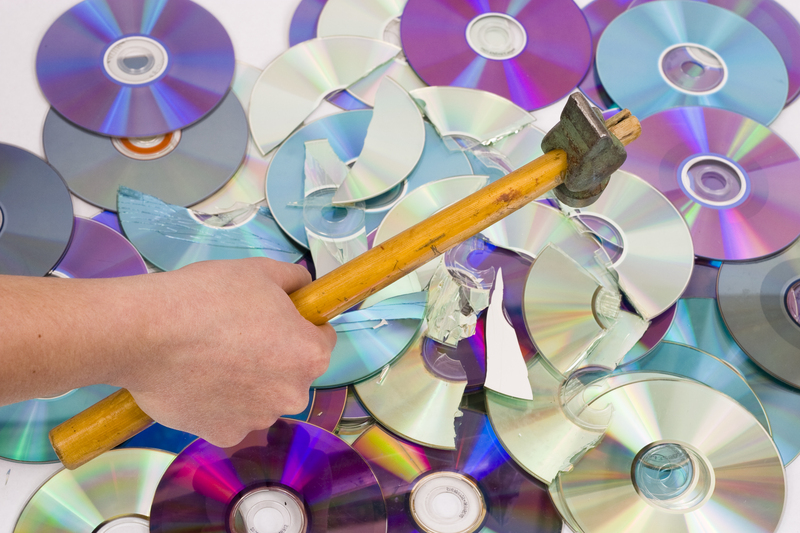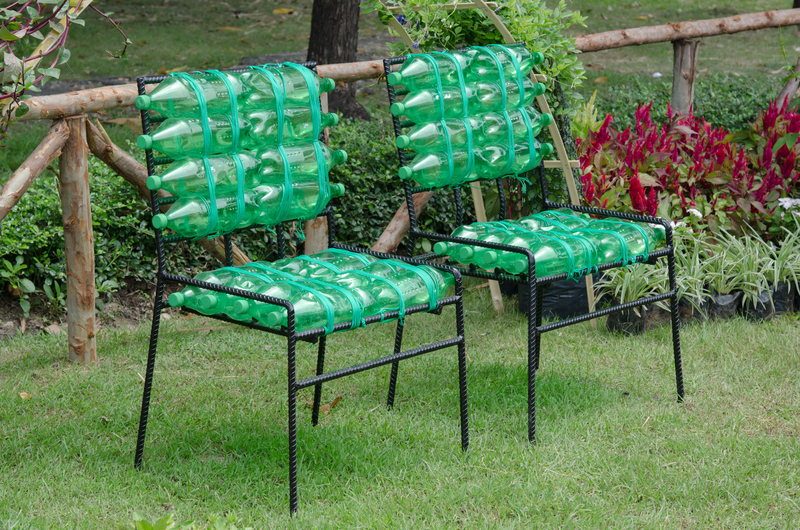The Ultimate Guide to Affordable Bulky Waste Management
Looking for the best strategies to handle bulky waste without breaking the bank? Discover our ultimate guide to affordable bulky waste management! Whether you're a homeowner, landlord, or business owner, effective bulky waste disposal is crucial for keeping your property clean, safe, and compliant with local regulations. In this comprehensive guide, we'll cover cost-effective solutions, recycling options, tips for reducing bulk waste, and practical steps for responsible disposal.
What Is Bulky Waste?
Bulky waste, sometimes called large item waste or heavy rubbish, refers to household or business items too large to be collected during standard waste removal services. Typical examples include:
- Furniture: sofas, mattresses, wardrobes, tables, chairs, cabinets
- Appliances: fridges, washing machines, ovens, freezers
- Garden Waste: large branches, old lawn mowers, fencing
- Miscellaneous: carpets, bikes, bathtubs, large toys
Bulky items are problematic due to their size and, sometimes, hazardous content. Disposing of them affordably and legally requires knowledge and planning.

Why Is Proper Bulky Waste Management Important?
Fewer people realise that improper disposal of bulky waste can cause serious environmental and safety problems. Abandoned items can block pavements, attract pests, pose health risks, and result in fines. Choosing affordable bulky waste solutions helps preserve the environment, reduces landfill pressure, and supports your local community.
Main Benefits of Responsible Bulky Waste Removal
- Reduces landfill impact: Reusing and recycling keeps waste out of landfills.
- Protects the environment: Proper disposal prevents harmful materials from leaching into soil and water.
- Avoids legal trouble: Following regulations prevents expensive fines and legal action.
- Improves community wellbeing: Clean, clear spaces maintain neighbourhood aesthetics.
- Enhances safety: Removing obstruction reduces accident risks and pest infestations.
Affordable Bulky Waste Disposal Options
When it comes to disposing bulky waste, there's no one-size-fits-all solution. The best choice depends on your items, budget, and timeframe. Here are the most cost-effective methods for clearing bulky rubbish:
1. Council Bulky Waste Collection Services
Many local councils offer bulky item collection for a small fee, or sometimes even free. These collections are ideal for typical household items like furniture and white goods.
- Pros: Convenient, safe, reliable, usually affordable (free in some areas)
- Cons: Limited number of collections per year, restrictions on items, wait times
Tip: Book early--slots fill up quickly, especially when disposing of furniture such as old sofas and mattresses.
2. Take Items to the Local Recycling Centre
Most communities have household waste recycling centres (HWRCs). These are often free for residents and accept a wide range of bulk waste.
- Pros: Typically free or low-cost, high recycling rates, accept most items
- Cons: You need a vehicle large enough to transport your waste, centres may exclude some materials
Tip: Separate wood, metal, and electronics for easier recycling and potential cost savings.
3. Hire a Man with a Van or Clearance Service
For large or mixed loads or when you can't transport waste yourself, a bulky waste clearance service is a practical option. Shop around and compare quotes to find the best deal.
- Pros: Handles heavy lifting, flexible timing, can remove all types of bulk waste
- Cons: Varies in price, risk of rogue traders (always check for waste carrier licences!)
Ask for a weight or volume-based price and clarify what's included.
4. Donate or Sell Unwanted Bulky Items
One person's clutter is another's treasure! Many charities and online marketplaces welcome old furniture and appliances. Donations save money, help others, and stop reusable goods from reaching landfill prematurely.
- Donation: Many charities collect bulky furniture for free
- Selling: Use online classifieds or community apps to re-home large items
Tip: Ensure items meet safety standards and are clean before donating to charity.
5. Skip Hire for Large or Ongoing Projects
Hiring a skip is ideal when renovating or clearing a whole house. Skips come in various sizes for different bulk waste requirements.
- Pros: Lets you clear waste at your own pace, reduces transport hassles, accommodates mixed loads
- Cons: Requires space, permits, costs more than individual collections
Choose the smallest size you need for cost saving--many skip providers recycle a large proportion of collected waste.
How to Reduce Bulky Waste Costs
Saving money on bulky waste management isn't just about finding cheap disposal. It's about minimising volume, recycling smartly, and preventing waste buildup. Here are effective ways to keep costs down:
- Plan ahead: Group items together for single collections to maximise value.
- Disassemble bulky items: Take apart furniture or appliances to fit them in your car or reduce clearance charges.
- Share disposal: Pool with neighbours for skip hire or van collections to split the bill.
- Sell or giveaway: Rehome functional items via online marketplaces or social media groups.
- Check warranty and returns: Some retailers and manufacturers will collect old appliances when delivering new ones.
Remember: Reducing what you throw away saves money and supports sustainable living.
Best Practices for Responsible Bulky Waste Disposal
Affordable doesn't mean careless! The most affordable bulk waste disposal is also safe, environmentally sound, and legal.
- Use registered waste carriers: Always ask to see a waste carrier licence when hiring a third party--rogue operators can dump your rubbish illegally, for which you could be fined.
- Know your local rules: Check your council's website for restrictions, fees, and guidance on disposing of large, hazardous, or electrical items.
- Segregate waste: Separate recyclables (metal, wood, textiles, electronics) to maximise recycling and minimise landfill costs.
- Avoid fly-tipping: Dumping bulky items in public places is illegal--and expensive if caught. Always use recognised disposal methods.
- Remove personal data: Wipe computers and devices before disposing to protect your privacy.
Affordable Bulky Waste Recycling Options
Most bulky waste isn't rubbish--it's potential raw material. Recycling large items is affordable, eco-friendly, and sometimes generates savings or even earnings.
Examples of Bulky Waste Recycling
- Metals: Old bikes, bed frames, ovens--take to scrap yards or HWRCs for recycling.
- Wood: Tables and shelving find second lives as chipboard or fuel pellets.
- Upholstered furniture: Special recycling centres remove foam, wood, and covers for repurposing.
- White goods: Fridges and washing machines are stripped for valuable parts and hazardous refrigerants safely removed.
- Mattresses: Many recycling centres dismantle mattresses, recovering steel springs and fibers.
Maximise recycling for larger items by checking specialist facilities or searching "bulky waste recycling near me" for drop-off locations.
Community Reuse Initiatives
- Check for furniture reuse schemes--local charities or social enterprises collect or accept good quality bulky household items for refurbishment and distribution to those in need.
- Community repair cafes or upcycling workshops give large items a new lease on life.
- Some councils organise
furniture swap days--perfect for rehoming sturdy items.
Common Mistakes in Bulky Waste Disposal (and How to Avoid Them)
- Leaving items roadside unchecked: Abandoning waste can bring big fines. Always book council collection or deliver directly to an approved centre.
- Hiring unlicensed traders: If your waste is fly-tipped, you are legally responsible. Check those credentials!
- Failing to separate recyclables: Mixing materials increases disposal fees and reduces recycling rates. Take time to sort!
- Forgetting about reuse or donation: Many bulky items still have value--explore donation and resale before disposal.
Step-By-Step Plan for Affordable and Efficient Bulky Waste Management
- Assess items: Make a list of what you need to dispose of and the condition of each item.
- Decide what can be reused or donated: Identify items in good working order and research local charities or online platforms.
- Find your best disposal route: Check council services, recycling centres, or bulk clearance services for your specific items.
- Dismantle and prepare bulky items: Break down where possible to save space and reduce clearance fees.
- Book disposal: Reserve council pickup, schedule clearance, or arrange transport to recycling centre.
- Document your disposal: Keep receipts or photos--handy if there's ever a dispute over where your waste went.
How Businesses Can Save Money on Large-Scale Bulky Waste
If you run a business, handling office furniture, equipment, or display materials can seem expensive. Here's how to manage commercial bulky waste affordably:
- Contract with reputable firms: Bulk rates for regular waste or large clear-outs often work out cheaper.
- Encourage staff reuse: Set up alerts for surplus furniture and equipment to be redirected internally.
- Consider leasing or buy-back: Rent office fixtures and appliances with return options, or buy from suppliers offering collection on replacement.
- Look for recycling rebates: Certain materials like metals or IT can attract rebates or free collection.
- Set clear-out days: Plan regular reviews to avoid last-minute, high-fee clearance jobs.

Bulky Waste Management: FAQs
- Is bulky waste the same as construction waste? No, bulky waste covers large household and office items, not rubble or hazardous building waste. Construction rubbish usually needs specialist contractors.
- What if I have hazardous bulky waste? Contact your local authority to find the nearest hazardous waste centre or check for council collection schemes.
- How often can I use council bulky waste collections? It varies by area--check your council's website for limits, costs, and eligibility.
- Can I leave bulky waste on the curb? Only if you've booked a collection; otherwise, you could be fined for illegal dumping.
- Will the council take everything? No, some items like commercial waste, rubble, or certain electronics may be excluded.
Conclusion: Save Money and the Planet with Smart Bulky Waste Management
Managing bulky waste doesn't need to be costly or complicated. By following this ultimate guide to affordable bulky waste management, you can clear your property, protect the environment, and save money.
- Reuse and donate first.
- Recycle wherever possible.
- Choose the most cost-effective, legal disposal route.
- Plan and group waste for savings.
Making eco-friendly, budget-aware bulky waste choices sets a great example and benefits everyone. For more in-depth advice, check your local council's website or reach out to certified waste management providers today!
Affordable bulky waste management is good for your wallet and even better for our world--start taking action today!
